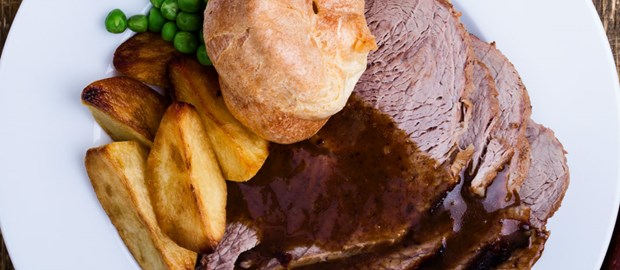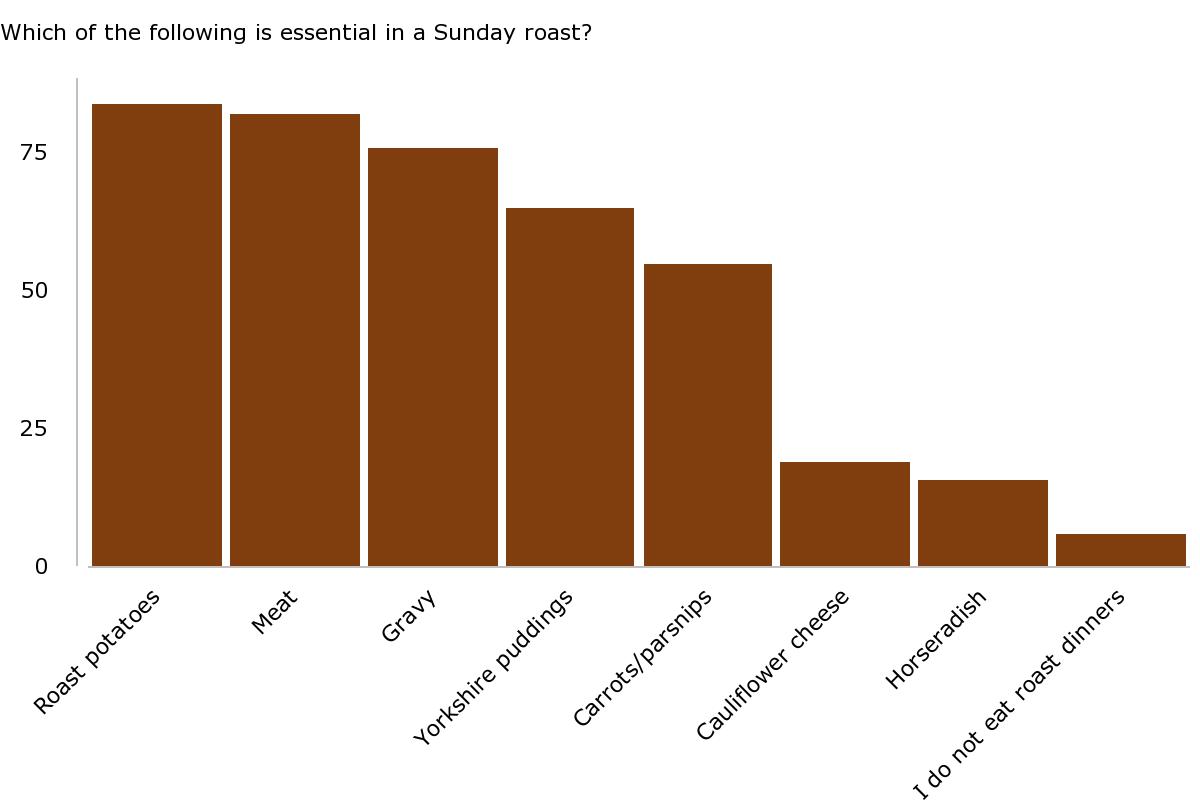
Are we still eating Sunday roasts?
Over the last year, the number of Sunday roast occasions in the UK has declined by more than 39 million*. But at the same time, roasts are being consumed during the week, adding 51.4 million occasions to the overall number, which now stands at 1.28 billion. In fact, following 18 months of decline, roast occasions have grown 4.2% this year. So while we might not be preparing them on a Sunday, the humble roast is still as popular as ever, and is still enjoyed on average 1.3 times a week (same as last year) but is reaching more consumers, with penetration going from 30.1% to 30.5%.
What is driving this trend? People from all age groups have increased their consumption of a roast dinner (apart from families with children under the age of 9 – who used to be the core audience). Occasions are rising most amongst empty nesters and families with older children (up 14.2% and 12.2%). A significant increase, however, is coming from millennials (without children) who have eaten 9.5% more (or 10.7 million more) roasts in the past year.
The changing home-cooked roast dinner
Perhaps new products that have made it ‘easier’ to prepare a cracking roast have played a part. Kantar Worldpanel data could support that – ‘practicality’ was an influence in 49m roast occasions last year (up 3.3.%), suggesting that roast eaters consider it to be easier than ever to rustle up some meat, veg, roast potatoes and a Yorkshire pudding or two (thanks Aunt Bessie). Pre-prepared vegetables have appeared in 62m roasts in the last year.
Relatedly, perhaps, another big change is our propensity to enjoy a roast at any time. Roast dinners are eaten 18.3% more times midweek (Monday to Thursday) than last year, while Sunday now accounts for less than half of all roast consumption occasions (47.9% vs 53.1% last year). 90.3m roasts are eaten on a Saturday, while 611.2m are eaten on a Sunday, and 499m are eaten between Monday and Thursday.
A healthier roast?
As well as convenience, ‘health’ is a consideration in 26.1m roast occasions. That’s up 1.1% on last year, and may prove the key to attracting families with young children back to the
It’s notable that consumption of roast beef is on the decline (we eat this 7.8% less than the year before), while roast chicken and roast turkey are seeing the biggest growth – up 14.1% and 11.1% respectively. And we may be moving beyond traditional carrots and sprouts – the number of roasts that included peppers grew 27% over the year.
A recent Lightspeed survey of 1009 people in the UK found that not everyone considers meat to be a key component of a roast – only 82% of respondents (80% of women and 84% of men) considered it ‘essential’ in a Sunday roast. 84% considered roast potatoes to be essential, while 65% couldn’t go without Yorkshire puddings. Amongst younger age groups, even fewer thought meat had to be included – 75% of 18-44 year old women, versus 83.5% of women over the age of 55. For men, it was 78% of those between 18 and 44, and 90% of over 55s. Times are a-changing for the roast dinner.

Popping out for a roast
So far we’ve only looked at trends in home-cooked roast dinners. But what about out of the home? In the same time period (52 w/e 22 April 2018), we had a total of 97.9m roast occasions out of the home – 10m more than last year! Many consumers are choosing to eat their roast out on Sundays instead (+11% more occasions vs. last year). 33% of people had a roast out of home (on any day of the week) and on average these people spent £89 on roasts across the year. Those aged over 55 are the core consumers, accounting for 50% of all roast occasions out of home.
Not only are we having more roast occasions out of home but we’re also spending more on them, with the average roast costing 6.3% more than last year. At £15 per occasion, roasts account for 3% of our total out-of-home spend, despite making up only 1% of our out-of-home occasions.